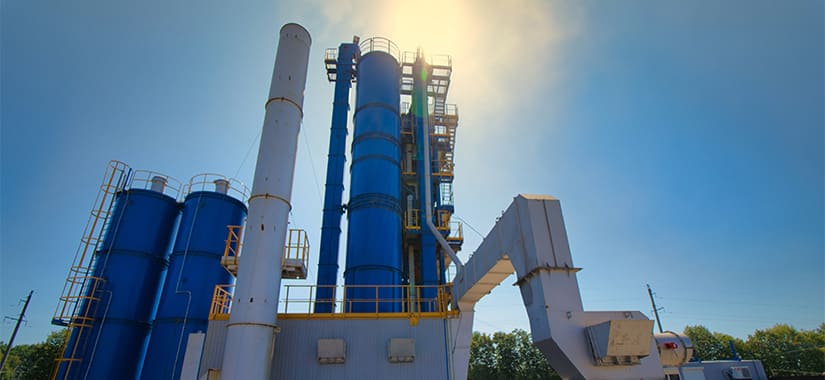
Demin plant equipment in the palm oil industry refers to devices used to produce demineralized or pure water by removing mineral ions such as calcium, magnesium, sodium, and other ions from process water. This demineralization process is carried out through ion exchange using cation and anion resins that can bind these ions, resulting in highly pure water with very low mineral content.
The demineralized water produced is crucial in various stages of production in the palm oil industry, as it ensures water quality that meets the required standards to optimize production processes and maintain equipment longevity.
The common problems and their solutions are as follows:
1. Problem: Hardness Leakage
The problem of hardness leakage in demin plant equipment occurs when the cation resin used to remove calcium and magnesium ions from process water becomes saturated, rendering it ineffective in ion exchange.
This causes calcium and magnesium ions to remain in the water flowing through the demin plant, potentially leading to scale formation on equipment and pipelines. The impact includes reduced operational efficiency, increased maintenance costs, and the risk of equipment damage in the palm oil industry.
Solution 1: EonResin Kation
EonResin Cation is an ideal solution to address the hardness leakage issue in demin plant equipment. This resin has excellent regeneration capabilities and can efficiently exchange ions. During regeneration, EonResin Cation replaces the calcium and magnesium ions trapped in the water with sodium ions, ensuring the water remains soft.
With EonResin Cation, you can optimize equipment operation, reduce the risk of scale formation on equipment and pipelines, and maintain high-quality process water. This resin also helps minimize downtime for regeneration, save on maintenance costs, and reduce the frequency of periodic resin replacement.
For further discussion on this solution, please contact us via WhatsApp.
Solution 2: Cleaning Resin
After your demin plant equipment uses EonResin Cation, the next solution step is to clean the resin periodically. This cleaning process is essential to restore the resin’s ability to effectively remove calcium and magnesium ions.
When the resin becomes saturated, cleaning is performed using a special solution that can release the ions attached to the resin surface. This helps restore the ion exchange capacity of the resin to optimal levels, allowing it to work efficiently in water treatment.
Regular resin cleaning also extends the resin’s lifespan.
By maintaining cleanliness and optimal performance of the resin, the process of removing hardness from process water can proceed consistently without interruptions due to resin saturation.
Solution 3: Training from EON Engineers
Eonchemicals engineers are ready to provide training for your team. Participants will gain an in-depth understanding of the principles and optimization techniques related to the use of chemicals.
With a good understanding of equipment operation and maintenance, as well as the proper application of chemicals, your team can identify problems more quickly and take appropriate actions to effectively prevent or address hardness leakage.
Take advantage of this opportunity; please contact us to schedule training or for a free consultation regarding issues in your industry.
2. Problem: Silica Leakage
The problem of silica leakage in demin plant equipment occurs when the demineralization process fails to effectively remove silica, leaving it in the processed water. Silica accumulation can lead to scale formation on equipment and pipelines, reducing operational efficiency and increasing the risk of equipment damage.
Several comprehensive solutions from Eonchemicals include:
Solution 1: EonResin Anion
EonResin Anion can be a solution for the silica leakage problem in demin plant equipment because this resin is specifically designed to have a high ion exchange capacity, including silicate ions. This anion resin works by binding silicate ions present in process water, replacing them with other ions, such as hydroxide ions, thus effectively removing silica from the water.
The high ion exchange capacity of EonResin Anion ensures that silica, which is usually difficult to remove, can be filtered more efficiently, reducing the risk of scale formation on equipment and pipelines.
| Read also boiler problems in the palm oil industry
Solution 2: Cleaning Resin
This cleaning aims to remove silica buildup and other contaminants attached to the resin surface, thereby restoring its ion exchange capacity. Using a special cleaning solution, resin washing can break down the accumulated silica bonds, ensuring the resin continues to work optimally in removing silica from process water.
| See more problems and solutions for softener equipment in demin plants
Solusi 3: Pelatihan dari Engineer EON
Eonchemicals is ready to provide training according to your needs, offering a better understanding of effective optimization principles and techniques related to chemical use. Your team can more quickly identify and address problems. For training schedules or free consultations regarding your industry issues, please contact us via WhatsApp chat.
Consult with EON Now
We are ready to listen and provide the right chemical solution for you. Consultation with our experts is free!

 Home
Home